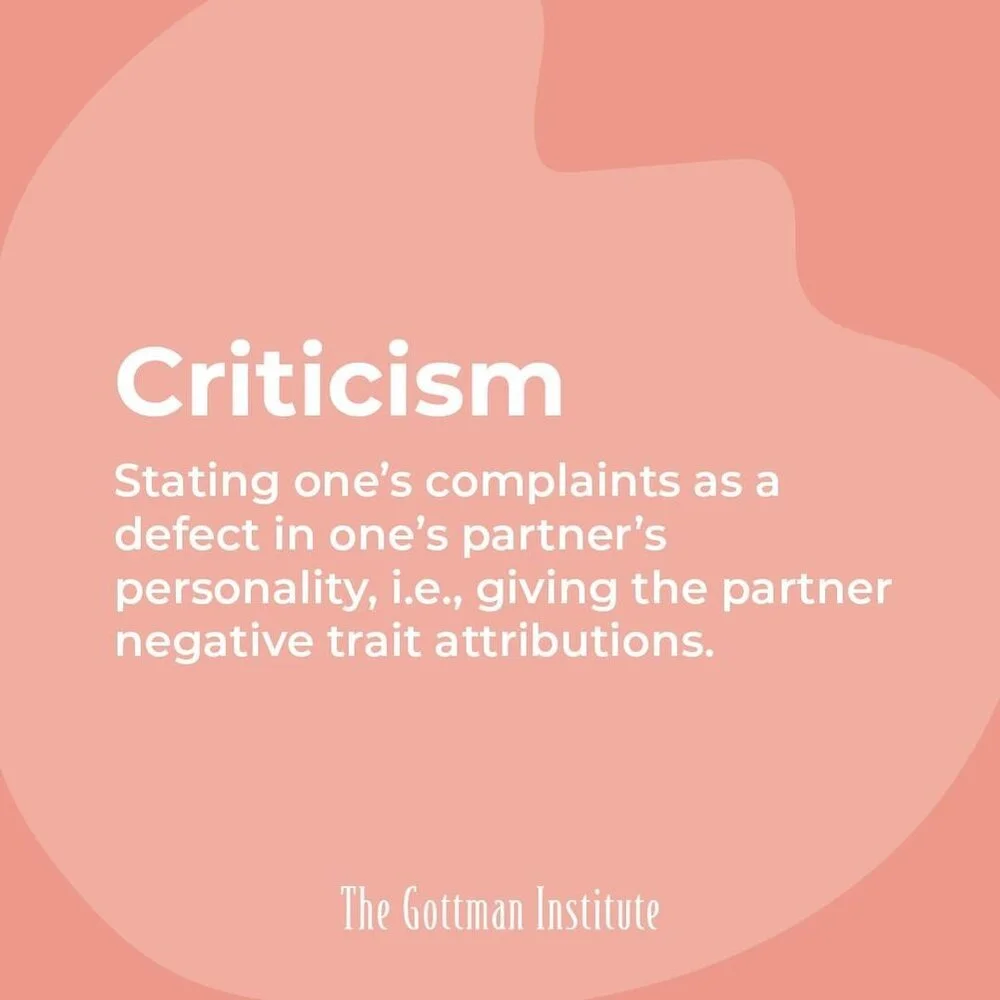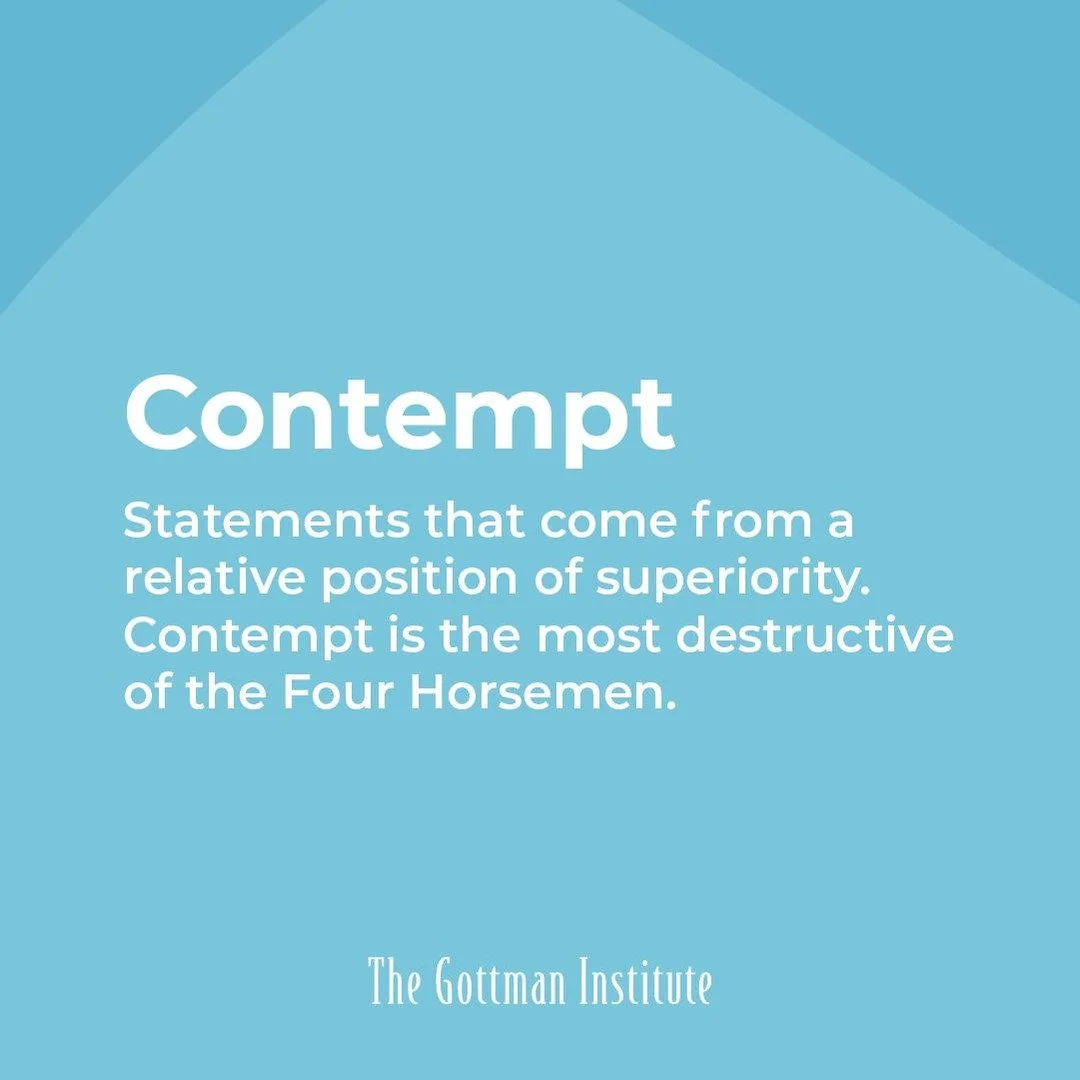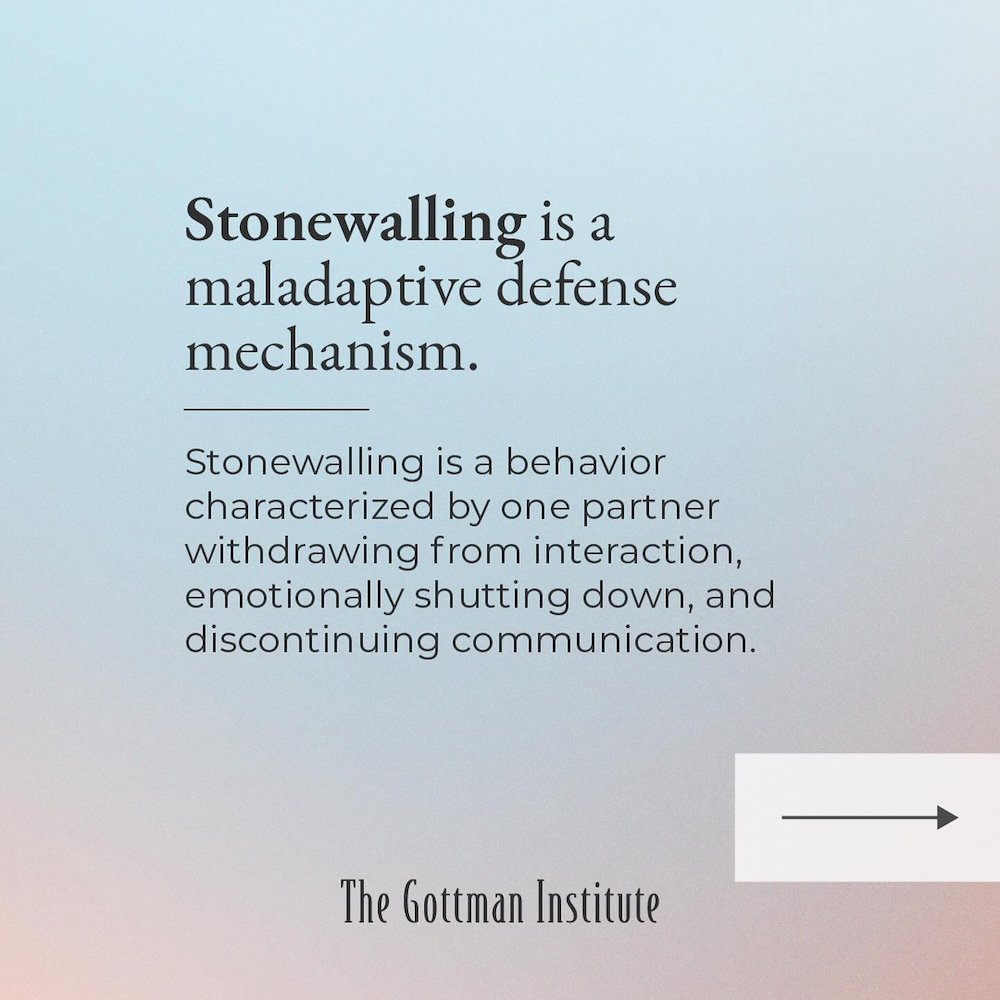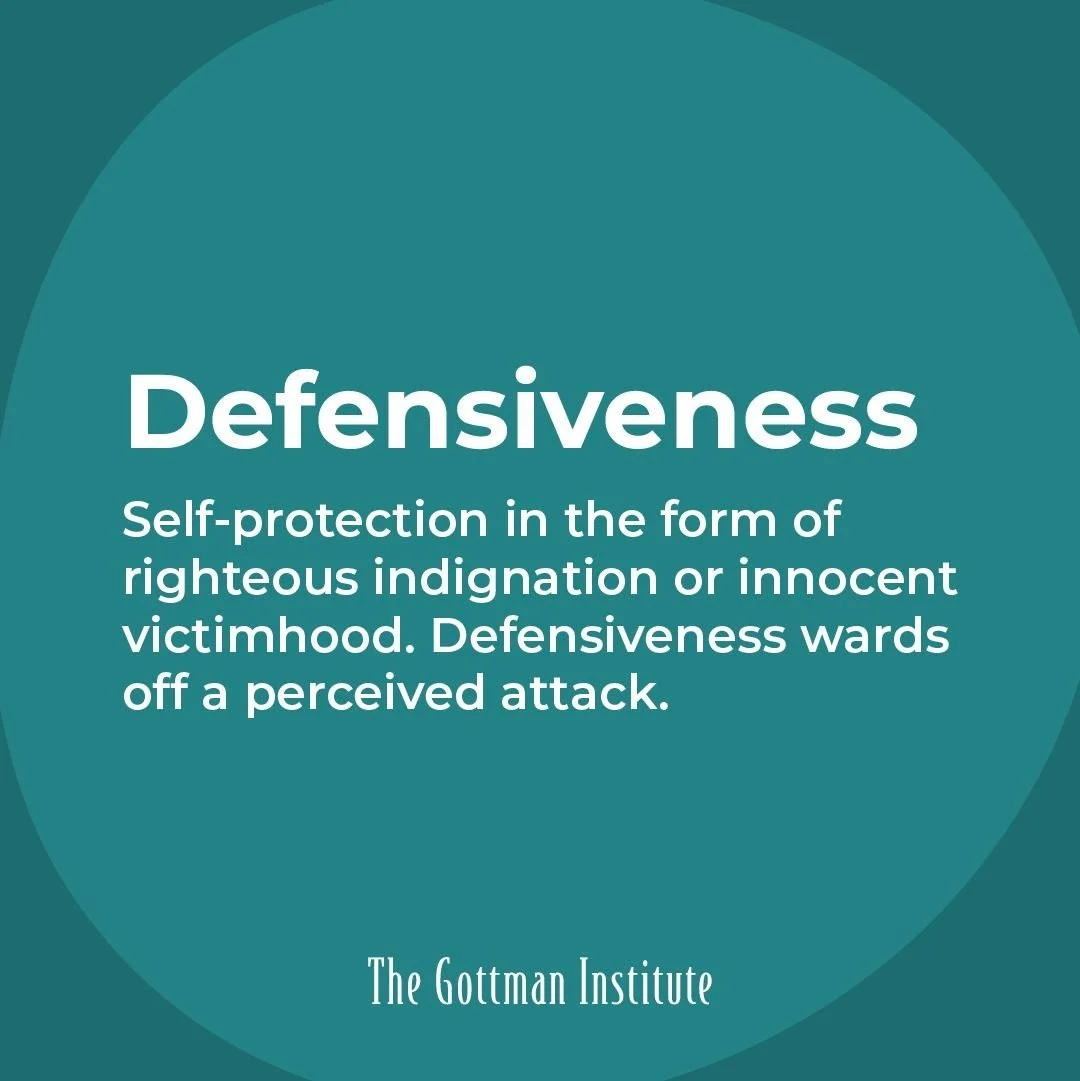Stop Saying These 4 Phrases To Your Partner And Your Relationship Will Get 27x Better
Tiny edits. Huge results.
by The Candidly Team
We were recently struck by something we learned from The Gottman Institute, an organization that has spent decades studying couple relationships.
According to Gottman, for a relationship to be healthy and thriving, couples should only have one negative interaction for every five positive interactions. They call this the “magic ratio.” And apparently, it even helps predict the couple’s likelihood of divorce.
Naturally, it got us counting.
We realized that despite how much we love and feel committed to the people we’ve chosen to spend our lives with, we were having WAY more negative interactions than we cared to. And we realized that these interactions were often perpetuated by four ways we find ourselves engaging in conversation. Four phrases to be specific - and we were using them way more than we would have guessed.
At best, they get us nowhere. At worst, they drive a wedge. So we decided to ditch them and see what happened. The results have been startling.
Here’s exactly what those phrases are and why we decided to stop saying them:
1) “Why are you always so…”
According to Gottman, there are four horsemen of the relationship apocalypse - that is, four specific patterns that increasingly predict a relationship’s demise. The first is criticism.
Of course, it’s perfectly natural to have legitimate complaints about our partner, you know the one who “didn’t hear” the last three favors we asked them and scarcely seems to remember the dishwasher exists much less requires loading and unloading. But when we start to define our partner by their shortcomings and see them through a negative filter, things can take a dark turn.
Anytime we start a statement with a broad, defining criticism, we’re heading for trouble. Using the term “always” and “never” is rarely a good start. And neither is starting with a blaming “you” statement in general.
“Why are you always so lazy about helping around the house?”
“Why are you always so forgetful about anything I ask you?”
“Why are you always so eager to watch TV and not spend any time with me?
So, what do we say instead?
Gottman talks about something called a “soft” or “gentle start up” as the anti-dote to criticism. This is a technique for engaging in conversation where you state a complaint (or concern) without blame, so your partner is more likely to hear the information and not react defensively.
Here’s how you make your statement:
Start with “I feel…” - add whatever emotion you’re feeling. This immediately makes the statement personal and about you, not about blame.
Then add the “about what…” This is where you describe the situation that’s upsetting you - not attacking your partner - just explaining the circumstance.
Finally close with “I need…” This is when you clearly tell them what you need. This should be a “positive need” - something that will make things better - not a complaint about how things are. Be honest, vulnerable, and direct.
When put together, an example might look like:
“I feel really sad about you forgetting when I ask you a favor, and I need to feel like what I say is important to you.”
2) “Are you ever going to…”
The most dangerous of the "four horsemen” is when our feelings and actions toward our partner turn to contempt. We might notice contempt in ways we sort of subtly or generally cast our partner in an ugly or inferior light. Maybe we catch ourselves starting our sentences in ways that assume the other person is going to do something negative or distasteful or maybe there’s an instructional tone of superiority. Whenever we start off assuming the worst of the other person, it’s a red flag.
“Are you ever going to actually get around to calling the plumber?”
“Are you ever going to stop thinking about yourself?”
“Are you ever going to ask me how I feel about that?”
So, what do we say instead?
The anti-dote to contempt, according to Gottman, is to create a “culture of appreciation.” This is an environment where you consciously notice and acknowledge all the positive ways your partner affects your life. Maybe they didn’t help clean the kitchen after dinner, but they made the kids crack up the whole time they were getting them ready for bed.
Another way to show appreciation is to acknowledge the other person’s life, experience, and inner world. And we can do this even when approaching them about a potential source of conflict. For example, you might start with a statement that shows you see them:
“I understand that…” - acknowledge some aspect of their experience, for example, that they worked really hard that day and might feel overwhelmed about being asked to put something else on their plate.
“But it helps me so much when you…” - this shows the value and appreciation for what they can offer.
An example of this non-contemptuous statement might be:
“I understand and really respect how hard you work all day, but it helps me so much when you do the dishes with me, so I don’t feel as burnt out at the end of the night.”
3) “Nevermind, I’ll just…”
Ahhh, the passive aggression. Admittedly, none of us want to be passive aggressive, but there can come a point in our frustration levels when failing to communicate with another person that we just feel like dealing with things ourselves.
The trouble is this can lead us to another horseman - stonewalling. Stonewalling is a way of shutting down and coming to a complete standstill where nothing gets talked about or resolved.
“Nevermind, I’ll just do it myself”
“Nevermind, I’ll just never bring it up again.”
What to say instead: When we feel like shutting down, the best course of action is often to take a break and do something that makes us feel calm and soothed. The idea is that we can go back to the conversation in a better headspace.
So instead of saying “nevermind” or “forget it,” we can simply say “I’m going to take a break. Let’s talk about this later when we both feel more clear-headed and less heated.”
4) “How come I’m always the one who…”
It’s one thing to say how we feel. It’s another thing to resort to victimized language that creates more exhaustion than empathy in the other person. When we act like we’re the only one who does anything, we create a hotbed for the fourth horseman, defensiveness. And this comes from us as well as our partner, who is now feeling like they have to list off everything they bring to the table in retalliation.
“How come I’m always the one who has to keep track of all the kids’ schoolwork?”
“How come I’m always the one who has to stay up late turning off all the lights?”
What to say instead: Hard as it is to do sometimes, showing that we’re capable of admitting where we went wrong is HUGE in terms of building trust and being able to talk honestly with a partner.
Just starting off by owning up to our side of a conflict or issue inspires reciprocity and creates more openness to feedback.
So we might say:
“I’m sorry I…” - verbally state something that might hurt or frustrate your partner.
“I realize that…” - explain what’s been tough for you.
An example might sound like:
“I’m sorry I complained so much and sounded critical. I realize I come off superior sometimes when I’m worried something won’t get done or I won’t have support.”
At this point, we can go back to a gentle start up to vocalize what we need from our partner.
It’s wildly easy to resort to old, emotive expressions in the heat of the moment, but even slight edits to our approach to a conversation can shift the entire outcome of the interaction. And when done repeatedly, it can actually shift the entire outcome of the relationship.
Just stopping these four phrases has already completely altered our ratio of good-to-bad interactions. And we gotta say, it is kind of “magic.”
This article is for informational purposes only. It is not intended to be used in place of professional advice, medical treatment, or professional care in any way. This article is not intended to be and should not be a substitute for professional care, advice or treatment. Please consult with your physician or healthcare provider before changing any health regimen. This article is not intended to diagnose, treat, or prevent disease of any kind. Read our Terms & Conditions and Privacy Policy.










